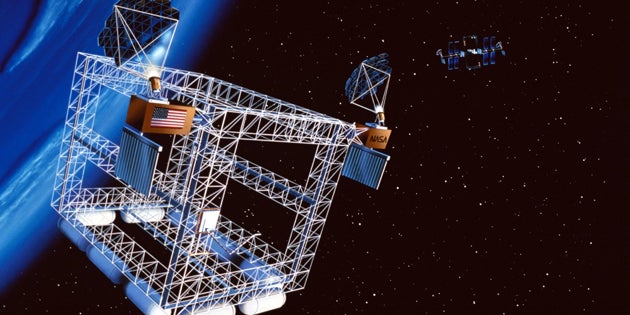The College of Charleston played a leading role in the development and submission of a research project that was recently awarded a $750,000 grant from NASA. The research could lead to new technologies for use in future space missions.
The grant was awarded as part of a NASA education initiative called the Experimental Program to Stimulate Competitive Research, or EPSCoR. The program is designed to seed aerospace and aerospace-related research and innovation as well as support faculty and student development.
South Carolina is one of 28 states that participate in NASA EPSCoR. The program is housed at the College of Charleston, which is also one of the program’s 15 member institutions along with the University of South Carolina, Clemson, the Medical University of South Carolina and most of the state’s other four-year colleges and universities.
The research project, titled “Explore a Unified Ultra-Efficient and Gravity-Insensitive Flow Boiling Pattern for Space Applications,” was one of only 15 projects selected in the nationally competitive grant program. The research will investigate new methods of transferring fluids in microgravity. This technology will help to advance the efficiency and output of space power systems, thermal management technologies, and liquid handling in cryogenic and life support systems in support of NASA’s future space exploration missions. Future earth-based applications may include more efficient battery and power system designs.
RELATED: Watch a video about undergraduate students conducting space-related research.
The principal science investigator for the science component of the project is Chen Li, an assistant professor of mechanical engineering at the University of South Carolina.
Cassandra Runyon, an associate professor of Geology at the College and director of South Carolina EPSCoR, is the project’s principal investigator and will oversee management and administration of the research project. Runyon will serve as the main point of contact between NASA and Li throughout the three-year project.
The NASA EPSCoR program at the College has helped facilitate several substantial research grants for South Carolina since its establishment at the College more than 20 years ago, said Runyon, who also directs the South Carolina Space Grant Consortium. Since 2000 alone, the program has been awarded more than $6 billion dollars in NASA EPSCoR research awards.
“We compete nationally to bring this federal funding to South Carolina,” Runyon said. “It also provides exposure for the College of Charleston and our faculty.”





